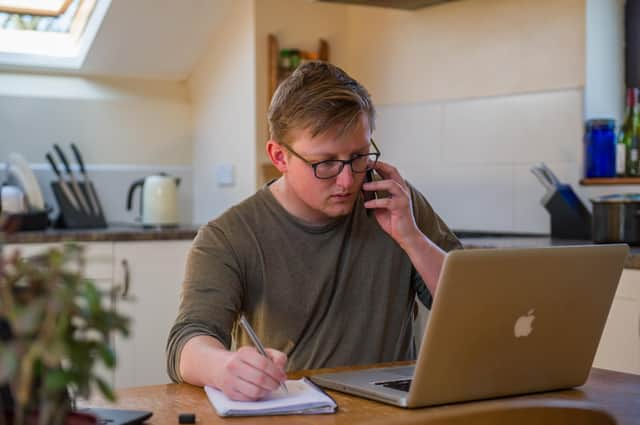Staff wellbeing should be top of your agenda - Nick Kuenssberg


One of the serendipitous benefits of the Covid lockdown is the way in which it has made the world of work more flexible. To the surprise of many businesses, the practical, operational challenge of organising working from home was simpler than they imagined as both employers and employees learnt at pace; it became less expensive than servicing large, costly office buildings and was a chance to ditch the frazzled daily commute – so much so that it’s likely to remain a permanent feature of the future work environment.
It looks like a win-win; or is it? Contrast the conflicting approaches of PwC, which has committed to a flexible post-pandemic hybrid working model, and Goldman Sachs which is bringing staff back to the office. As we slowly emerge from lockdown, the hidden problems and tensions of home working are becoming clearer, presenting new and different human resources challenges, for large scale employers with resources, as well as for SMEs.
Advertisement
Hide AdAdvertisement
Hide AdSurveys by the Office for National Statistics and the Royal Society for Public Health have indicated that employees’ mental health has suffered detrimentally as a result of the pandemic. Depression and anxiety has increased due to people spending too much time on their own. Many feel much less connected to their colleagues despite the endless contact via Zoom. There is no obvious or straightforward answer for employers but there is one thing they all need to address and that is the mental health of the workforce.


Mental illness does not discriminate – most of us are touched by it at some point in our lives, yet there is still a stigma around being open about it and, even if you are, it’s not always clear where to go to find help. The other point is that there is no one cause. It can be the gradual accumulation of many different issues in someone’s life – health, relationships, money, abuse, bereavement.
For employers with large offices workplace health and safety has been focused on the physical fabric of a building – make sure it’s safe for all the people who work in it. How do you make sure that the minds of those people who work for you are also cared for now? Whereas before the pandemic a staff wellbeing plan was perhaps something that was good to have, it is fast becoming a necessity.
Economic productivity rests on having committed and passionate people in your business. Financial organisations, for example, whose banking and consultancy services have remained in high demand during the pandemic, have reported increased levels of exhaustion and stress.
Some employers have responded by setting up community and wellness programmes such as online mindfulness or yoga sessions, offering additional leave and subsidised subscriptions to meditation apps to help staff decompress. However, it is important to consider other aspects of an employee’s wellbeing – their workspace, whether they are taking proper breaks and the other pressures they might be facing outside of their working hours.
Mental Health Awareness Week has given employers the chance to reflect on how their duty of care needs to adapt to the new working environment. It is clear that a more proactive and wide-ranging approach is needed now so employees can get support before they reach the point of need.
While for some of us the prospect of continuing to work from home in large part is welcome, for many, especially younger employees who might well be living on their own, the chance to get back to the office offers the chance of social activity and much missed human contact. For a small, but important minority, living with an abusive partner or family member, the chance to go out to work might, quite literally, be a lifeline.
The world of work is changing fast and will continue to change and the biggest challenge we face as a society going forward is to understand how we all adapt.
Nick Kuenssberg is Chairman of Frog Systems
Comments
Want to join the conversation? Please or to comment on this article.